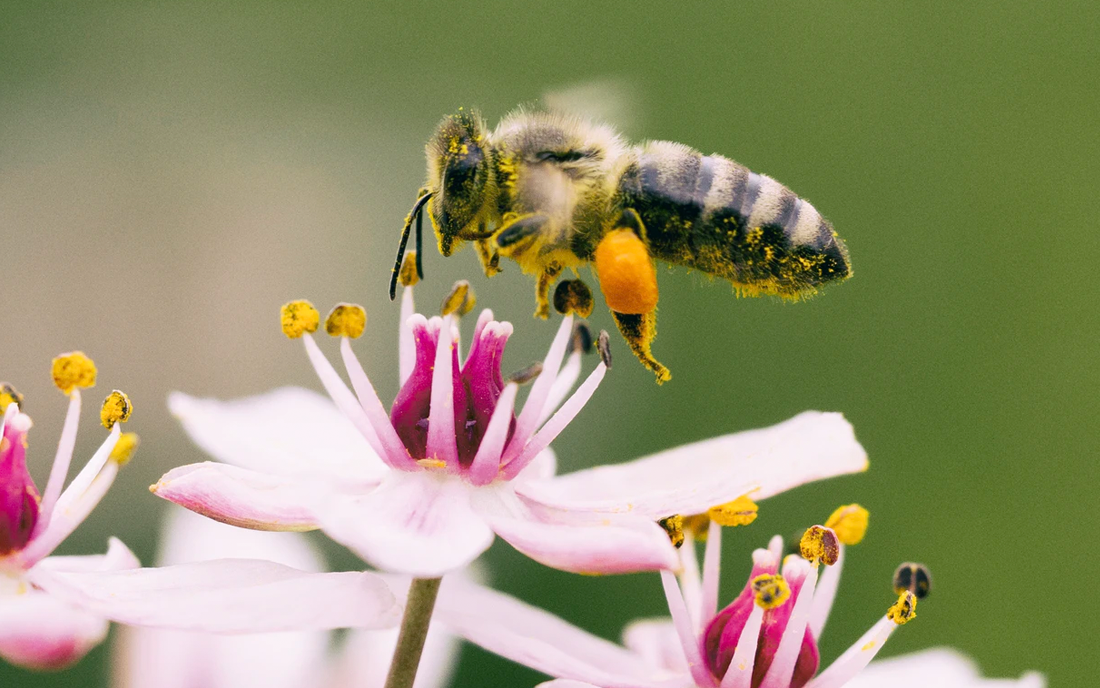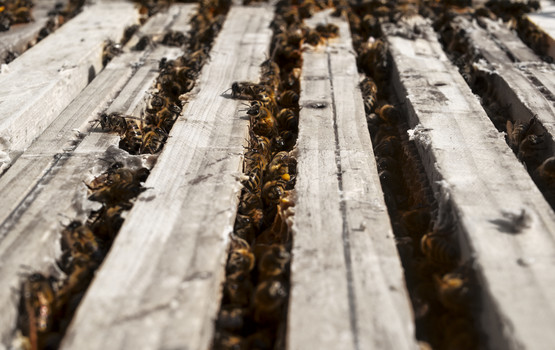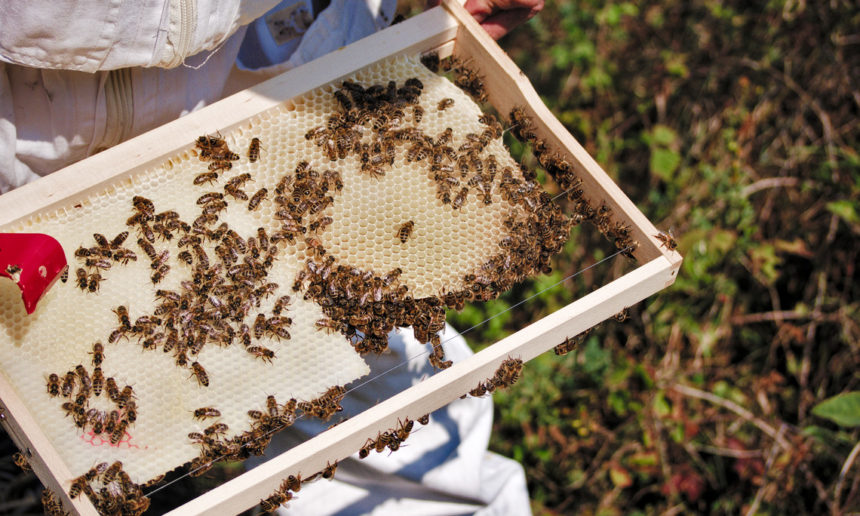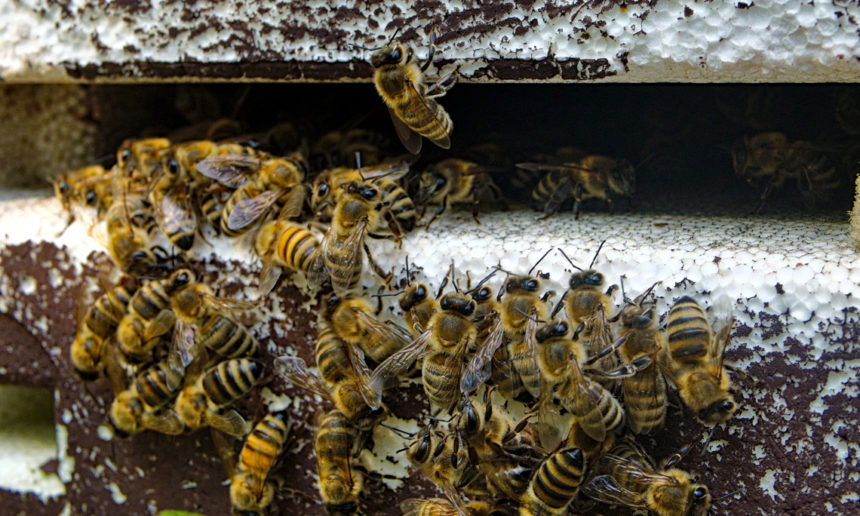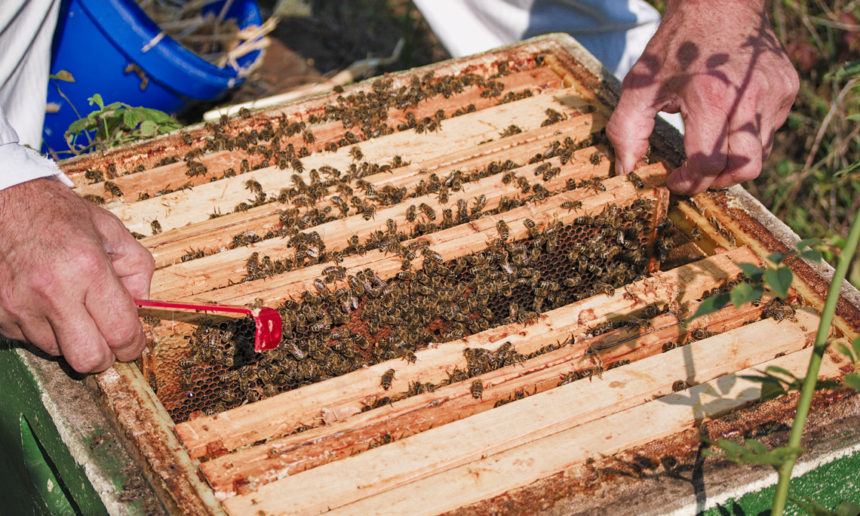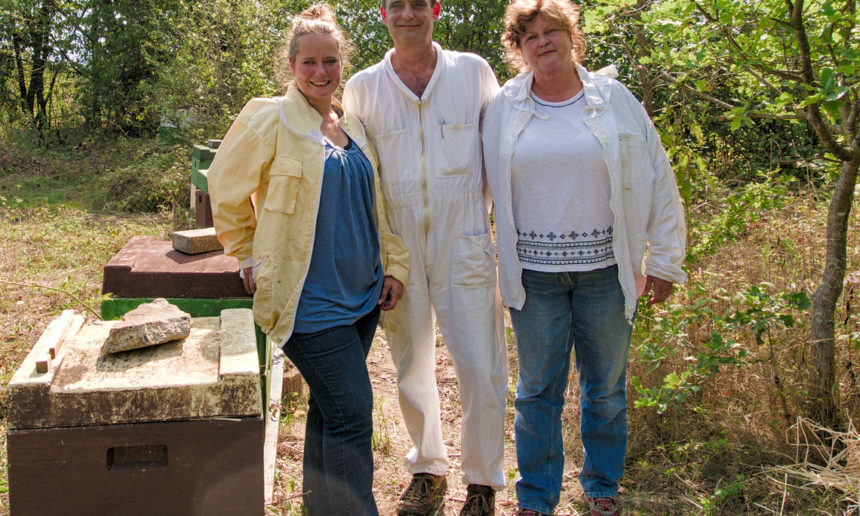A data-driven approach to protect our bees
Bees do not only collect pollen, but data
Bees are incredibly effective data collectors. They fly through the air day in, day out, collecting environmental samples in the form of nectar, which they then store as honey in their hive. By carrying pollen from flower to flower, bees, like many other insects, are the key to plant pollination and are a vital link in our food chain.
One bee visits about 100 flowers per collective flight. Ten flights per day would result in 1,000 flowers. A colony of bees pollinates several million flowers every day and provides information about their health status and any contamination of the soil via the nectar. Information that has not been used so far.
Health4Bees is developing an open source approach to make this concentrated knowledge of environmental influences accessible, to protect both bee colonies and humans. By evaluating environmental data from bee colonies with overlapping catchment areas, it is possible to precisely determine where environmental toxins – which are equally harmful to bees and humans – are located.
Markus Bärmann is an experienced beekeeper and has been fighting for bee protection for decades. He published his first patent to protect bees from the Varroa mite in 2001, more than 15 years before the word “bee mortality” was invented. And he is also a pioneer with his Health4Bees initiative.
A smartphone app to analyze the environmental situation of each beehive’s catchment area
Markus Bärmann’s first Health4Bees product are beeswax plates based on biopolymers, which are not only food safe and free of harmful substances, but also competitive in terms of price. A proprietary QR code enables the company to trace where and who is using the plate.
Once the beehive itself is free of pollutants, the pollen can be analysed in a second step. For this purpose, Health4Bees is developing an app with which the analysis of the honey can also be assigned to the respective beekeeper and his hives in the next processing stage. As an open source database that is freely accessible to everyone, more and more knowledge can be processed in this way, providing information about the respective environmental influences in the direct vicinity of a beehive. Although there have already been large-scale studies on the environmental influences in honey production in the past, there is still a long way to go. However, the corporations keep the results under lock and key, so that the individual beekeeper is deprived of the information that would enable preventive, health-promoting measures. Health4Bees wants to change this.
How Health4Bees contributes to the 17 Global Goals
Biodiversity
Protection of bees as primary goal
Good health and well-being
Healthy bees are key to safeguard our food value chains
Responsible consumption and production
Health4Bees is changing the production chain, among others by providing pollutant-free honeycombs for beekeepers
Digital Infrastructure
Establishing an open-source technology platform to assist beekeepers to analyze data from overlapping beehives to locate toxic soils.
Strong institutions
Health4Bees engages for a sound regulatory framework that enables safe and sustainable honey production
Project Assessment
You can access the full project assessment here:
Images
Your Feedback
How do you like the project? Give us feedback!


